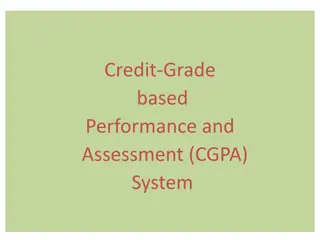
Child Mental Health: Risks, Factors, and Protective Measures
Explore the rising rates of child mental ill health, missed opportunities for support, protective factors like strong parental attachment and positive parenting, as well as risk factors such as violence, neglect, and poverty. Learn how inequalities impact children and young people's mental well-being.
Download Presentation

Please find below an Image/Link to download the presentation.
The content on the website is provided AS IS for your information and personal use only. It may not be sold, licensed, or shared on other websites without obtaining consent from the author. If you encounter any issues during the download, it is possible that the publisher has removed the file from their server.
You are allowed to download the files provided on this website for personal or commercial use, subject to the condition that they are used lawfully. All files are the property of their respective owners.
The content on the website is provided AS IS for your information and personal use only. It may not be sold, licensed, or shared on other websites without obtaining consent from the author.
E N D
Presentation Transcript
Making the grade: mental health in schools Andy Bell @CentreforMH @Andy__Bell__ 12 January 2021
Our role and mission Research that makes a difference Translating evidence into policy & practice Supporting & evaluating innovation Campaigning for change
Tavistock Relationships Our vision: For all infants, children and young people to grow up in a society that prioritises, invests, listens and attends to their mental health and wellbeing
Mental health spectrum We all have mental health
Rates of child mental ill health Poor mental health among children and young people rose between 2004 & 2016: from 1 in 10 to 1 in 8 (now 1 in 6) Biggest rise among girls and young women Emotional problems now more prevalent than behavioural Unequal risks: 4 times higher for poorest children by age 11
For every 1,000 young people
Missed opportunities Childhood mental health problems are extremely common, can be very persistent and for many cast a long shadow into adult life. Most parents seek help for their children, but few get it.
Protective factors for good mental health Strong parental attachment Positive parenting Having a decent income Security (eg living in secure housing and being in a safe neighbourhood) Social connection Fairness
Risk factors for poor mental health Violence, neglect and abuse Bullying Poverty and inequality Discrimination and injustice Homelessness and housing insecurity Crime (and fear of crime) Traumatic events
Inequalities in risk Groups of children and young people at higher risk include: Children whose parents have poor mental health Children with disabilities and physical illness Young people from some racialised communities LGBT+ young people Children from low income or homeless households Looked After Children Children with neurodevelopmental conditions
Making the grade: how education shapes young people s mental health Young people from across the UK identified the unique role of schools, colleges and universities in shaping their wellbeing and being a source of support. But school can also have a detrimental impact on wellbeing and mental health. https://www.centreformentalhealth.org.uk /publications/making-grade
How schools can enhance mental health Relationships: feeling safe, connected & belonging & reliable adults Environment: spaces to play & secure places to get support Teaching: culture, arts and life skills as well as mental health education
What gets in the way Academic pressures: teach to test culture Stereotypes: including for racialised young people Adversity: including young carers and Looked After Children Transitions: including from primary to secondary Inequalities: including hidden curriculum of school trips, prizes, assemblies, etc
What helps schools promote wellbeing? A whole organisation approach to mental health Leadership and management that values wellbeing Students having an active role in their learning and a voice in the community Attention to staff development, health and wellbeing Effective identification of need for mental health support Working with parents and carers, with high levels of engagement Targeted support for particular needs
Barriers to supporting wellbeing in schools Funding constraints A lack of staff training and support in mental health Low levels of wellbeing among school staff Limited involvement of schools in local health and care partnerships Inconsistent or limited national guidance
What young people told us: My friendship group is what I rely on rather than support services, I d always rather talk to a friend who knows your background and cares about you Young person from Bristol, England I think it s harder for boys to talk to someone, see us girls we just natter to anyone but [I] don t know if there s any male role models out there Young person from North Ayrshire, Scotland At school you re told exams are everything, but they re not everything. We still have feelings, but feelings don t seem to matter any more. The stress is too much Young person from North Ayrshire, Scotland
What young people told us: Our school doesn t have money to take us out and learn practically - Young person from Bradford, England If you go and seek help then you are being labelled and people treat you differently, the system in school lets everyone know that you are seeking help Young person from Denbighshire, Wales You are supported if you want a big career like a doctor etc but not if you want to do arts Young person from Lisburn, Northern Ireland
Trauma and restrictive interventions About 1/3 young people experience a traumatic event Of these about will experience symptoms of post-traumatic stress disorder (PTSD) Higher risk of trauma exposure among children with behavioural problems, ADHD, autistic spectrum disorders and learning disabilities + most marginalised & disadvantaged social groups
Trauma and challenging behaviour are linked: Trauma causes challenging behaviour: Changes stress responses, leading to impulsivity & poor emotional control Challenging behaviour causes trauma: Greater exposure to high risk situations, eg greater danger of brain injury Both may be independently caused by common factors
Trauma and restrictive interventions Restrictive interventions have negative impacts on mental health regardless of previous experiences Similarities between current situation and past distress may trigger stress response in those affected by trauma, eg: Children who have been neglected or separated from caregiver may find seclusion or exclusion more distressing
Trauma, challenging behaviour & RI
Alternative strategies Positive behavioural support: Reduces use of restrictive interventions by helping child manage behaviour But doesn t change external environment Trauma-informed schools: Social and emotional learning Safe and caring environment Positive experience of reliable adults Support for staff wellbeing
This is me Guide for schools produced by young men from Shifting the Dial project in Birmingham We need more teachers who get to the point not Where s your tie? , but Do you need a tie? - immediately offering help and not embarrassment if his shirt isn t tucked in, he just needs to be taught that s not how he can move on in professional society through this whitecentric world in which he is so undermined and forgotten about and pushed under. www.centreformentalhealth.org.uk/this-is-me
Covid-19 and childrens mental health Significant and lasting effects including: Trauma, bereavement and loss Isolation and loneliness Worries about the future Estimated 1.5m children will need additional mental health support as a direct result Current investment in wellbeing in schools way below academic catch-up funding Can we build back better in schools?
Thank you For more information: andy.bell@centreformentalhealth.org.uk @CentreforMH @MH_Challenge @Andy__Bell__ www.centreformentalhealth.org.uk






















